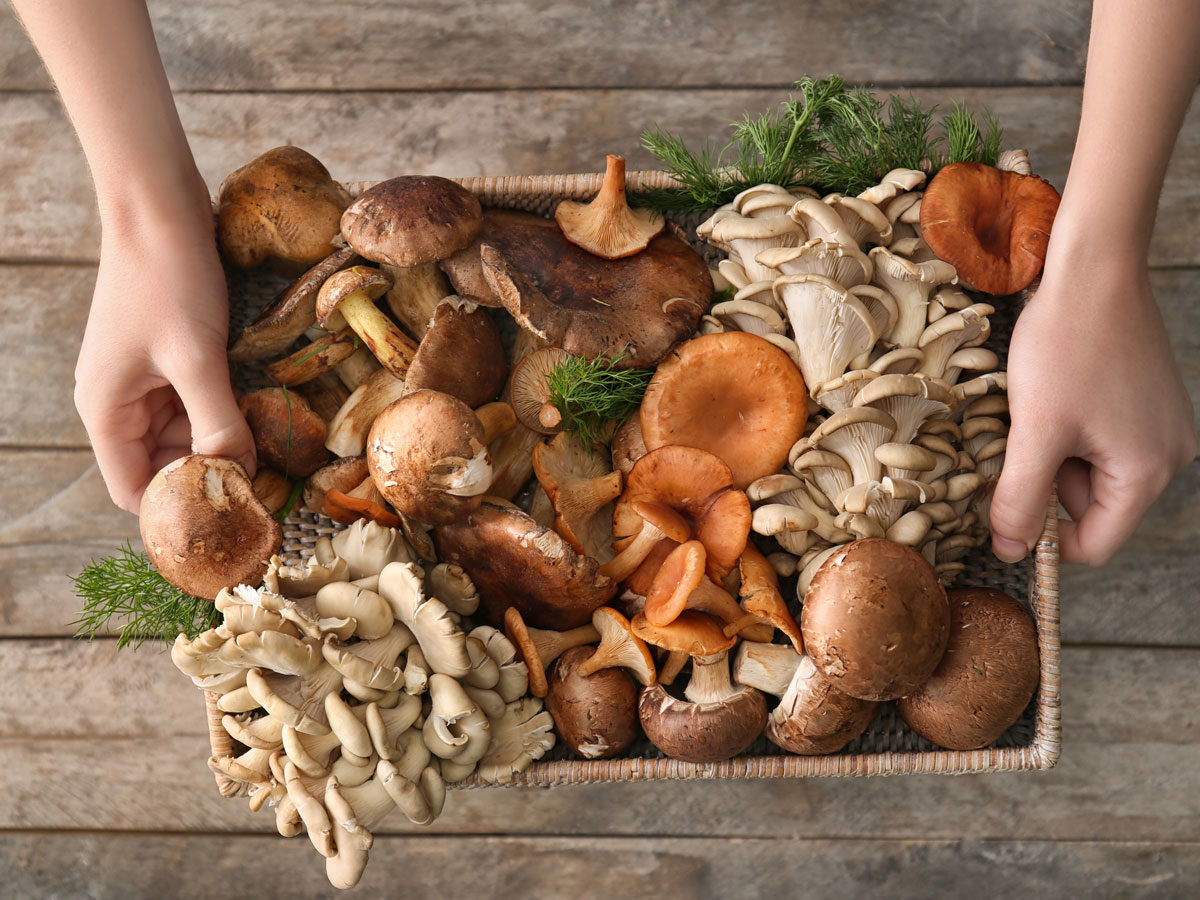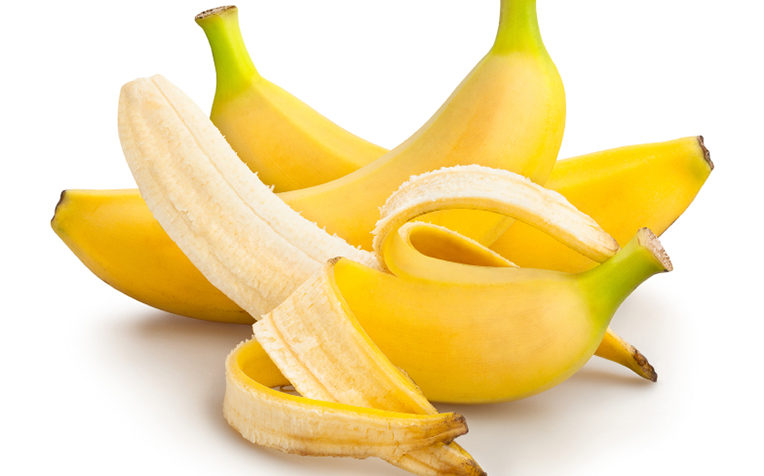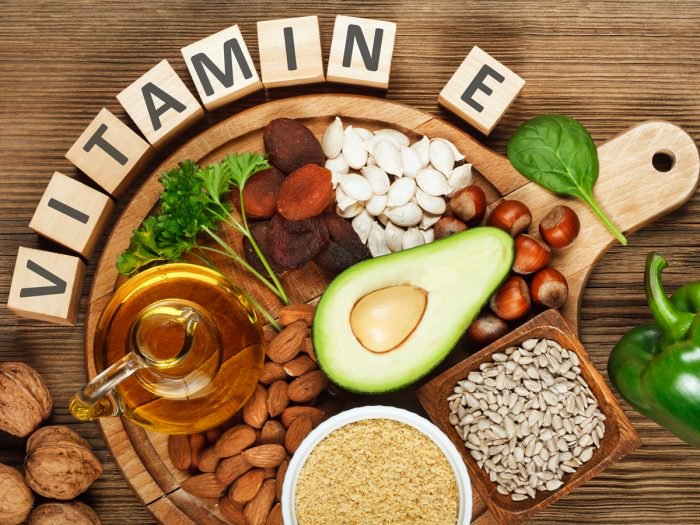
Edible fungi mushrooms have been consumed by humans for centuries. These nutrient-dense foods have innumerous varieties and although their popularity depends on the price and availability, mushrooms are generally considered healthy. The popularity of edible mushrooms also depends on the absence of toxins and how enticing the taste and smell of certain mushroom species is. From the most common white mushrooms to the prized and rare truffles, a range of mushrooms are consumed around the world, not just for their creamy, earthy flavour, but also because of their numerous health benefits, that many of us are aware of.
Mushrooms have increasingly come to be categorised as vegetable, although some vegetarians may still not consider consuming them, due to their soft, meat-like texture. They are added to numerous dishes like pastas, pizzas, burgers, patties, quiches and omelettes etc., but not all of these dishes are very healthy. However, there are some healthy ways of including mushrooms in your diet, without adding empty calories to your meals. Mushrooms can enhance the taste of any dish they are added to, due to their creamy flavour. Let's look at some of the health benefits of mushrooms, before we move on to healthy ways of adding them to our diets.
Mushroom Nutrition Facts And Values
White mushrooms are extremely low in calories- a 100 gm of the fungi packs just 22 calories! They also contain negligible fat and cholesterol, but are rather rich in protein (3.1 gm per 100 gm) and healthy carbohydrates (3.3 gm of carbs per 100 gm), according to data by United States Department of Agriculture. They also contain iron, magnesium and Vitamins C, D and B-6. They are also rich in potassium, which is an important nutrient for maintaining heart and brain health, as well as promote weight loss.
Mushroom Benefits
They help maintain health of the nervous system, due to the presence of potassium in them.
1. Mushrooms may also help bring blood pressure levels under control, due to the presence of high levels of potassium and low levels of sodium.
2. Mushrooms may even help diabetics regulate blood sugar levels, due to the presence of chromium in them.
3. Mushrooms are great for promoting weight loss, on account of being low in calories and rich in protein. They also have good water content.
How To Add Mushroom To Your Diet In Healthy Way
1. Creamy Sauces
Mushrooms can make your sauces and gravies creamy and eliminate the need for you to add cream or milk. Add a paste of mushrooms instead of your regular cream to your pastas or any other dish and enjoy them guilt free!
2. Mushroom Coffee
A lot of people are now adding mushroom supplements and powders to their morning coffee, to reap the health benefits of these nutritional powerhouses. Coffee purists may crinkle their noses at the prospect of adding mushroom to their cuppa, but it may be a quick way of adding it to your diet.
3. Mushroom Soups
Make soups using mushrooms or add them to your soup broth to make them more nutrient-rich.
4. Mushroom Stir-Fry
A side of vegetable along with your favourite protein makes for a complete and wholesome meal. You can stir-fry mushrooms, along with a number of vegetables including broccoli, beans, sweet peppers etc., and enjoy along with your choice of white or red meats.
Banana is probably one of the most commonly available fruits throughout the world. Botanically classified as a berry, it packs a nutrition punch. Bananas grow on large herbaceous flowering plant in bunches and can be of red, brown, purple, yellow and green variety. Be it the flower, leaf, trunk or the fruit itself, the entire shrub is useful in various ways. In the Indian subcontinent, bananas are widely used in cooking; banana chips, banana jelly, raw banana subzi are some of the most popular dishes in our country. The flowers of banana are a delicacy in both Bengali and south Indian cuisines. Banana leaves are used for making eco-friendly disposable eating bowls as they are waterproof and flexible enough to be moulded into shapes. Other than this, fish and rice is often wrapped in these leaves for cooking purpose. Whereas, the soft inner core of the banana trunk is used across Southeast Asian cuisines for cooking.
In addition, the fibre from the shrub has been used for making clothes since the 13th century and it is also used for making paper.
Despite being abundantly rich in essential nutrients, bananas have always been associated with obesity for some strange reason. Hence, to understand its health quotient, let's have a closer look at the nutrients.
Calories: At less than 100Kcal per serving, this is a perfect in-between meal snack. It provides important vitamins and minerals too.
Carbohydrates: A good source of carbs, bananas provide quick energy and are a perfect pre-workout snack. Carbs are the main source of energy for our body, so a healthy carb snack goes a long way in keeping our energy levels up. Bananas have a low Glycaemic index (51+/- 3), which means that the fruit isn't going to increase your blood sugar too much. Diabetics need to speak to their nutritionist for individual guidance.
Fat: Bananas contain .22gms of fat! It's negligible, so stop worrying and add bananas to your meals as one of the seasonal fruits to have in rotation.
Fibre: Bananas have a modest amount of fibre but what makes it an ideal choice for healthy digestion is the fact that within its fibre is one type called Pectin. A soluble fibre, the quantity of pectin increases as the fruit ripens. Pectin is linked to decreasing cholesterol and lipids in the blood. It has also shown glucose and insulin lowering activity, and in addition it increases the gastric emptying time, which further promotes satiety.
Folates: One of the preferred weaning foods for babies is mashed banana. The folates present in bananas help meet the need for folic acid in infancy and early childhood. Folates are required for converting carbs to energy, for making red and white blood cells and for production of DNA & RNA. Folic acid is also associated with a decreased risk of heart diseases and stroke.
Potassium: It is a key mineral that is associated with important functions in the body. Potassium is required for maintaining the electrolyte balance in the blood and also help in controlling blood pressure by negating the effects of salt. It is essential for the muscles to work effectively, especially those that control the heart beats and breathing; potassium also helps the nerves work properly.
Every food that nature provides us with comes along with health benefits; therefore, eliminating it from diet because of some myth not just deprives us of good nutrition but also variety, which is the spice of life. The only contraindication for consuming bananas are for people with kidney diseases, or people on medication, which may lead to an increase in potassium.

Diet is linked with not just the physical health of our body, but it is also linked with our mental and emotional health. Research has established this link between what we eat and our emotions, proving that consuming certain foods may help us stay chirpy, fresh and alert, while some others may lead to mood swings, depressive symptoms and sluggishness. A new study has said that diet can affect the emotional well-being of a person, especially in women. The study has suggested that women may need to consume a more nutrient-rich diet as compared to men, in order to maintain their emotional health. Health experts have maintained that men and women have different dietary needs.
The study was published in the journal Nutritional Neuroscience and it was conducted by the researchers at Binghamton University. There is evidence to suggest that anatomical differences in the brains of men and women dictate their predisposition to mental illnesses. However, there isn't much research into the connection between dietary patterns and gender-specific psychological well-being. The study looked at the results of an anonymous online survey of 563 participants. The survey was conducted through social media to analyse the issue. And 48 per cent of the participants were men and 52 per cent were women.
The researchers found that while men are more likely to experience emotional well-being until such time as dietary deficiencies may arise, it's the other way round for women. In order to able to maintain themselves in good emotional health, women need to consume a healthy diet. Lead author Lina Begdache, assistant professor of health and wellness studies at Binghamton University said, "The biggest takeaway is that women may need a larger spectrum of nutrients to support mood, compared to men. These findings may explain the reason why women are twice more likely to be diagnosed with anxiety and depression and suffer from longer episodes, compared to men. Today's diet is high in energy but poor in key nutrients that support brain anatomy and functionality."
She added by saying, "Males and females had different physical and emotional responsibilities that may have necessitated different energy requirements and food preference. Gender-based differential food and energy intake may explain the differential brain volumes and connectivity between females and males. Therefore, a potential mismatch is happening between our contemporary diet and the evolved human brain which is disturbing the normal functionality of certain systems in the brain."

Vitamins are important for our body, but often get ignored in our obsession with proteins and fats. Vitamins are a part of the essential micro-nutrients that are required in smaller quantities by our body, for smooth functioning of a number of processes. Some of the most important vitamins required by the human body include vitamins A, B1, B2, B3, B5, B6, B9, B12, C, D, E and K. It's a long list to remember, but the good news is that if you consume a healthy and balanced diet, you may already be consuming a good majority of these vitamins on a daily basis. However, your nutritionist might be better able to shed light on exactly how much of each of these vitamins is required by your body. We're going to talk about vitamin E and its benefits as well as foods rich in vitamin E, in this article.
Benefits Of Vitamin E And Recommended Daily Allowance (RDA)
Vitamin E is a fat-soluble vitamin that has a number of forms. The one that is useful to our body, however, is alpha-tocopherol, the main role of which is to act like an antioxidant and hunt down free radicals in the body. Free radical damage is linked to a number of potentially fatal diseases, including cancer, atherosclerosis, dementia, diabetes etc. The recommended daily allowance of vitamin E (as specified by guidelines of the Institute of Medicine) is 15 mg for both men and women.
Here Are Some Benefits Or Roles Of Vitamin E That You Must Know About:
1. Vitamin E-rich foods and supplements may help in reducing heart disease risk.
2. Vitamin E, in combination with zinc, vitamin C and beta-carotene may protect against advanced age-related macular degeneration, indicating that this vitamin may protect eye health.
3. Some studies have shown that consuming vitamin E is linked with improvement in cognitive function and reduced risk of diseases like Alzheimer's and Parkinson's.
4. One study showed that taking vitamin E-rich foods and supplements may reduce risks of death from ALS or Amyotrophic Lateral Sclerosis, which is a rare condition that causes progressive muscle weakness.
5. Vitamin E has been hailed for its purported ability to stop production of free radical cells and protect the cells from damage by free radicals.
Sources Of Vitamin E, The Antioxidant Vitamin
1. Wheat Germ Oil
This oil is extracted from the germ of the wheat kernel and is one of the best dietary sources of vitamin E - 255 milligrams per 100 gram. However, wheat germ oil is extremely perishable and quite expensive.
2. Almonds
The most popular nuts around - almonds are nutritious and consumed for their many health benefits. A 100 grams portion of almonds contains 25.6 milligrams of Vitamin E.
3. Avocado
One of the most popular superfoods around, avocado is replete with healthy nutrients, including vitamin E that is 14 percent of the Daily Value per 100 grams of the fruit.
4. Sunflower Seeds
The seeds of sunflower are also consumed as healthy snacks, rich in mono and polyunsaturated fats, as well as vitamin E. A 100 grams portion of sunflower seeds contains 35.7 milligrams of vitamin E.
5. Peanuts and Peanut Butter
Peanuts are technically legumes that are most often mistaken for nuts. They are rich in protein and are consumed as snacks as well as in the form of peanut butter. Peanuts contain 44 per cent daily value of Vitamin E, per 100 grams portion.
6. Soyabean Oil
Some of the best dietary sources of Vitamin E are plant-based oils, including soyabean oil, which is widely used for cooking in a number of homes worldwide. Hundred grams of refined soyabean oil contains 8.8 milligrams of Vitamin E.
7. Spinach
One of the best low-calorie vegetables that- spinach- is a favourite of health freaks around the world. Spinach is a versatile vegetable with a wealth of nutrition including good amounts of Vitamins A, C and K. Spinach is also among the richest sources of Vitamin E among popular vegetables- 44 per cent of daily value per 100 grams.
A deficiency of vitamin E is rare, as it is needed in such trace amounts by the body and also because it is found in commonly consumed foods. However, those who do not consume enough fat in their diet may develop a deficiency of this vitamin. Some of the signs of vitamin E deficiency include reduced immunity, retinal damage, damage of the peripheral nerves resulting in pain and weakness in hands and legs and ataxia or loss of movement in body. If you notice one or more of these symptoms, contact a qualified medical professional.

Ginger is a root spice that is included in a number of dishes and desserts in cuisines around the world. Indians have a special affinity for this warm and pungent spice with a strong flavour. Most of our curries- both vegetarian and non-vegetarian start with frying a ginger paste with onions to add flavour to them. Ginger is also grated into that most favoured drink of the nation that fuels us on a daily basis- masala chai. Adrak waali chai has a separate fan base among the tea drinkers of India and with good reason- it is believed to be a remedy for a number of small and big problems like headaches, cold, stomach aches, cramps, etc. No wonder then that ginger is also highly valued in the ancient Indian system of medicine- Ayurveda- and is included in numerous home remedies and Ayurvedic concoctions.
But can this almost messiah-like spice turn villainous when consumed in excess? 'Everything is bad in excess' is one rule of thumb that one should follow in life and the same applies to diet and nutrition as well. Over-consumption of ginger may also lead to some health problems. If you are suffering from any particular chronic condition, then too, you might want to check with your nutritionist before adding ginger to your diet.
Given below are some side-effects of ginger that you must be aware of:
1. Excessive Bleeding During Menstruation
Ginger is considered a natural blood thinner. This is why some menstruating women may experience increased bleeding if they consume excessive ginger in their diets. This blood thinning action of ginger is due to the presence of the acid salicylate, which has anti-coagulation properties.
2. Hypoglycaemia
Ginger and ginger extracts have been known to help diabetes patients reduce blood sugar or glucose levels. This is due to the presence of the main active compound of the root- gingerols- which enhance the uptake of glucose into muscle cells without the need for insulin. Therefore, non-diabetics or people prone to low blood sugar levels may want to use ginger with caution.
3. Disturbed Digestion
Although ginger is said to be an effective home remedy for a number of gastric issues like heartburn, gas and bloating, it may result in completely opposite symptoms if consumed in excess. Consuming over 4 or 5 gms of ginger per day may result in mild heart burn and may even trigger gas and bloating.
4. Low Blood Pressure
Ginger is said to be beneficial in regulating symptoms of high blood pressure or hypertension. However, when consumed in excess by people suffering from low blood pressure, it may further lead to a BP drop, exacerbating heart problems and leading to a number of unprecedented complications.
Although ginger is an intrinsic part of many of our lives, you may want to still keep your intake of the spice within the daily recommended limits, to avoid any of the above side-effects.












